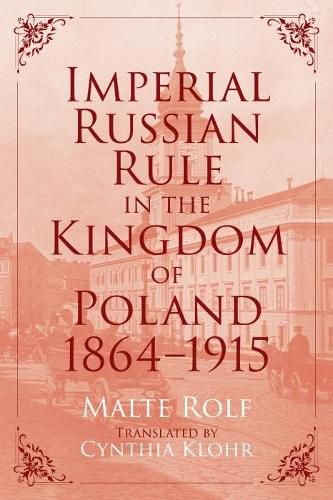Readings Newsletter
Become a Readings Member to make your shopping experience even easier.
Sign in or sign up for free!
You’re not far away from qualifying for FREE standard shipping within Australia
You’ve qualified for FREE standard shipping within Australia
The cart is loading…






After crushing the Polish Uprising in 1863-64, Russia established a new system of administration and control. Imperial Russian Rule in the Kingdom of Poland, 1864-1915 investigates in detail the imperial bureaucracy’s highly variable relationship with Polish society over the next half century. It portrays the personnel and policies of Russian domination and describes the numerous conflicts between the Tsarist officialdom and the local population. Presenting case studies of both modes of conflict and cooperation, Malte Rolf replaces the old, unambiguous heroic Poles vs. evil Russians narrative with a more nuanced account and does justice to the complexity and diversity of imperials encounters of Poles, Jews, and Russians in this contested borderland. At the same time, it highlights the process of provincializing the center, in which the erosion of imperial rule in the (Polish) borderlands facilitated the demise of the authority of the monarchy in the capital itself.
$9.00 standard shipping within Australia
FREE standard shipping within Australia for orders over $100.00
Express & International shipping calculated at checkout
After crushing the Polish Uprising in 1863-64, Russia established a new system of administration and control. Imperial Russian Rule in the Kingdom of Poland, 1864-1915 investigates in detail the imperial bureaucracy’s highly variable relationship with Polish society over the next half century. It portrays the personnel and policies of Russian domination and describes the numerous conflicts between the Tsarist officialdom and the local population. Presenting case studies of both modes of conflict and cooperation, Malte Rolf replaces the old, unambiguous heroic Poles vs. evil Russians narrative with a more nuanced account and does justice to the complexity and diversity of imperials encounters of Poles, Jews, and Russians in this contested borderland. At the same time, it highlights the process of provincializing the center, in which the erosion of imperial rule in the (Polish) borderlands facilitated the demise of the authority of the monarchy in the capital itself.